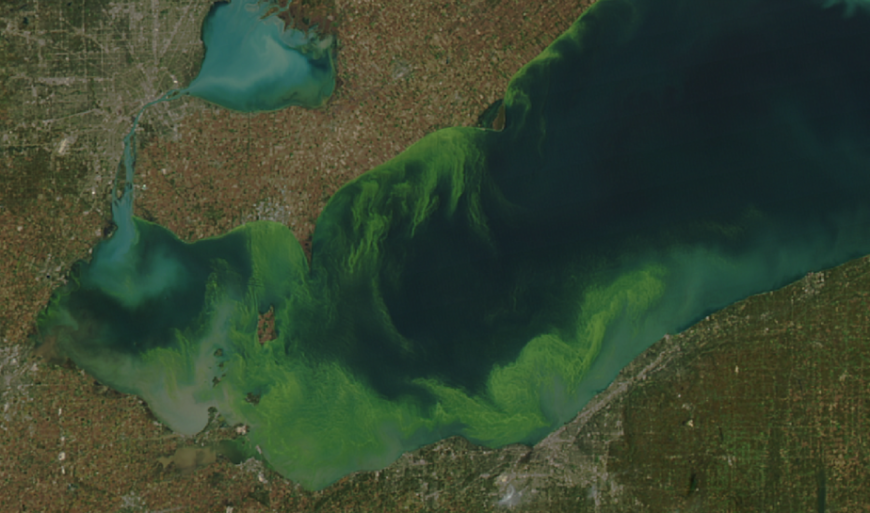Climate Change Drives Lakes Toward Tipping Points
Reported by Bob Berwyn, INSIDECLIMATE NEWS
June 23, 2017
Rapidly warming water can change a lake, including increasing its algae growth and expanding its dead zones. A new study helps identify the lakes most at risk.
Excerpts:
When rising temperatures brewed up a perfect storm of excessive rainfall and extreme heat in the summer of 2014, the fallout hit home. The impacts were felt by at least half a million people in Ohio when a super-bloom of cyanobacteria, a toxic blue-green algae, shut down drinking water supplies for several days.

High temperatures and heavy rainfall lead to widespread algae growth in Lake Erie in 2014 and 2015. A new study looks at the risks to deep lakes in higher latitudes as global temperatures rise. Credit: NASA
Scientists already know that the rapid warming of lakes will increase the number and intensity of such blooms, as well as other disturbances like oxygen-deprived dead zones. A new study published June 23 in the journal Scientific Reports helps identify which lakes are most likely to be affected, information that can help people and communities develop adaptation plans amid climate change…
Based on an evaluation of 20 years (1991-2011) of data, the study concluded that deep lakes in cold climates—including the Great Lakes— are most at risk from global warming…
Deep lakes are warming fast because they can store heat for a long time, which enables it to build up…
Illinois State University researcher Catherine O’Reilly said there’s no doubt that climate change will shift lakes into new regimes.
“These tipping points or thresholds are likely created not just by climate change itself, but by interactions between climate change and other factors, such as climate oscillations like El Niño … But now, each year is a new record-setting year, and because the climate itself does not return to normal, the lake is never able to recover completely,” she said…
Beyond cutting global greenhouse gas emissions and limiting warming, scientists emphasize that maintaining healthy ecosystems are the best way to make them resilient to climate change and other impacts…
Follow PCM on Social Media